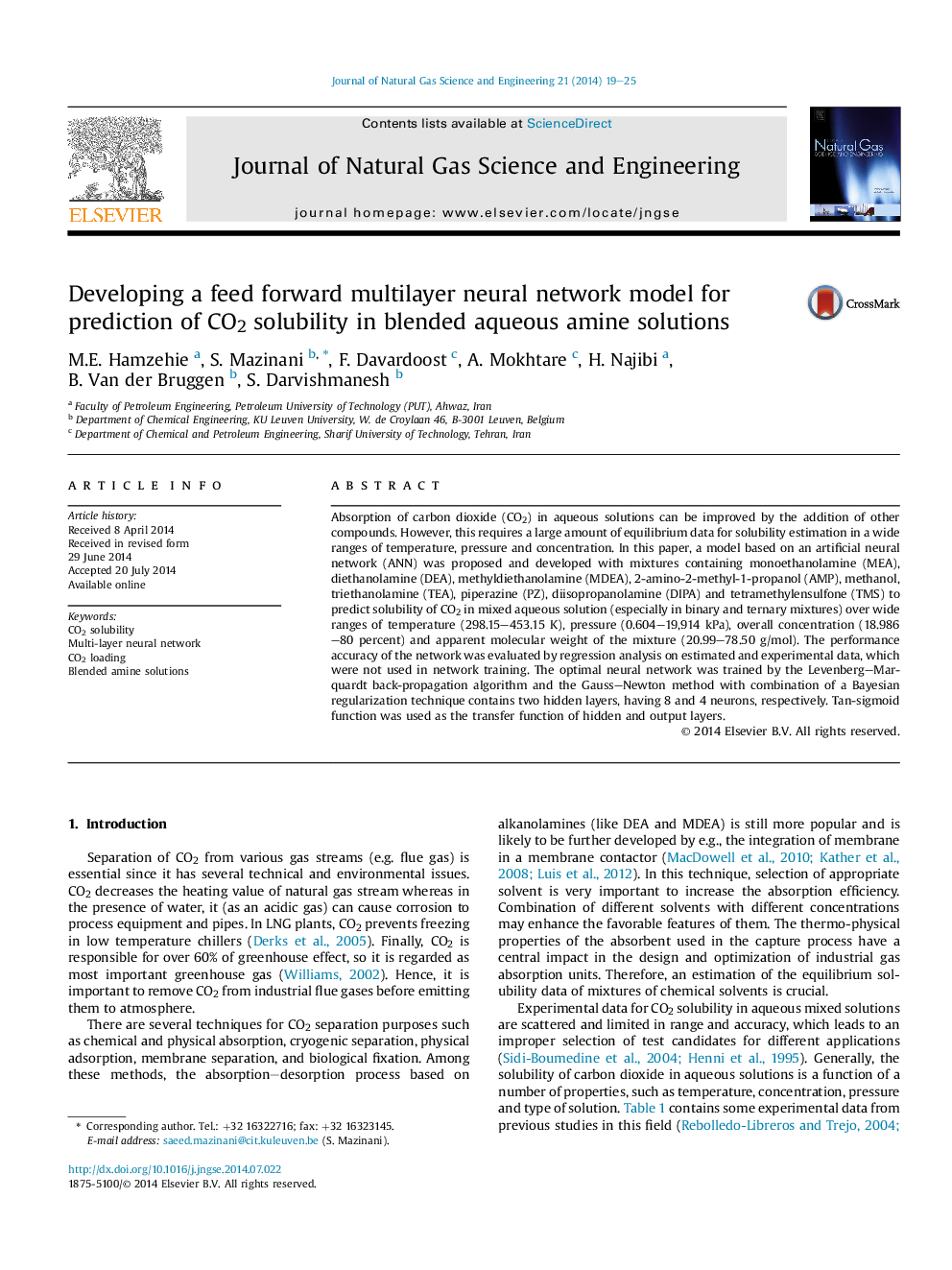| Article ID | Journal | Published Year | Pages | File Type |
|---|---|---|---|---|
| 8129093 | Journal of Natural Gas Science and Engineering | 2014 | 7 Pages |
Abstract
Absorption of carbon dioxide (CO2) in aqueous solutions can be improved by the addition of other compounds. However, this requires a large amount of equilibrium data for solubility estimation in a wide ranges of temperature, pressure and concentration. In this paper, a model based on an artificial neural network (ANN) was proposed and developed with mixtures containing monoethanolamine (MEA), diethanolamine (DEA), methyldiethanolamine (MDEA), 2-amino-2-methyl-1-propanol (AMP), methanol, triethanolamine (TEA), piperazine (PZ), diisopropanolamine (DIPA) and tetramethylensulfone (TMS) to predict solubility of CO2 in mixed aqueous solution (especially in binary and ternary mixtures) over wide ranges of temperature (298.15-453.15Â K), pressure (0.604-19,914Â kPa), overall concentration (18.986-80 percent) and apparent molecular weight of the mixture (20.99-78.50Â g/mol). The performance accuracy of the network was evaluated by regression analysis on estimated and experimental data, which were not used in network training. The optimal neural network was trained by the Levenberg-Marquardt back-propagation algorithm and the Gauss-Newton method with combination of a Bayesian regularization technique contains two hidden layers, having 8 and 4 neurons, respectively. Tan-sigmoid function was used as the transfer function of hidden and output layers.
Related Topics
Physical Sciences and Engineering
Earth and Planetary Sciences
Earth and Planetary Sciences (General)
Authors
M.E. Hamzehie, S. Mazinani, F. Davardoost, A. Mokhtare, H. Najibi, B. Van der Bruggen, S. Darvishmanesh,
